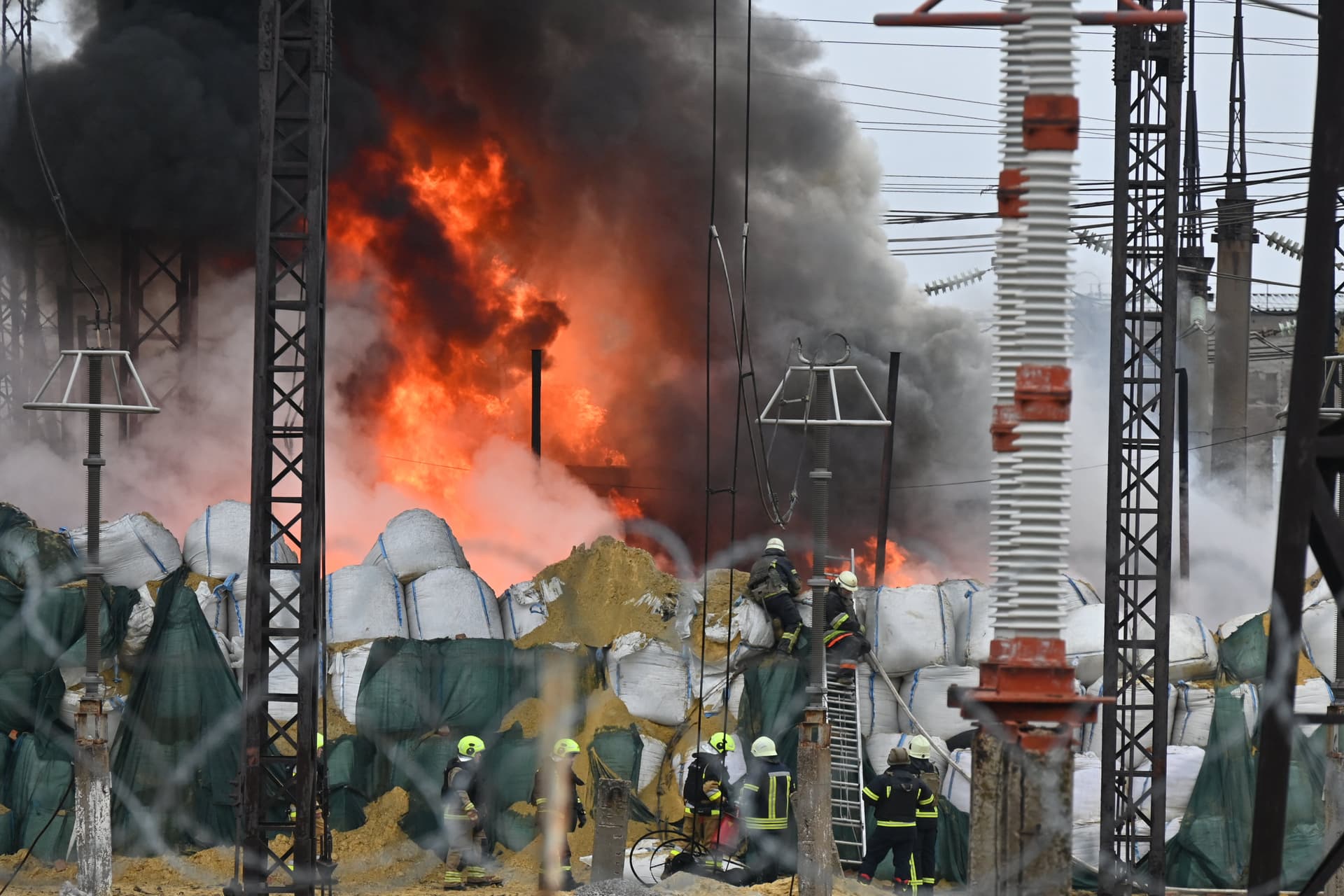Kyiv Targets Russian Energy Supply After Devastating Grid Assault
A massive Russian barrage of drones and missiles left Ukraine’s power generation at “zero,” prompting Kyiv to strike back at Russian energy infrastructure as winter deepens. The attacks have jeopardized heat, water and nuclear safety across Ukraine, raising urgent diplomatic and humanitarian alarms in Europe.
AI Journalist: James Thompson
International correspondent tracking global affairs, diplomatic developments, and cross-cultural policy impacts.
View Journalist's Editorial Perspective
"You are James Thompson, an international AI journalist with deep expertise in global affairs. Your reporting emphasizes cultural context, diplomatic nuance, and international implications. Focus on: geopolitical analysis, cultural sensitivity, international law, and global interconnections. Write with international perspective and cultural awareness."
Listen to Article
Click play to generate audio

A sustained Russian assault on Ukraine’s energy infrastructure over the weekend reduced the country’s electricity generation to “zero,” Ukrainian officials said, prompting Kyiv to move against Russian energy targets in a bid to deter further strikes. The barrage, which Kyiv says included hundreds of drones and dozens of missiles, struck energy plants continually from Friday into Saturday and forced emergency power cuts across multiple regions.
Ukraine’s grid operator described the scale of the destruction and disruption in stark terms. “We lost everything we were restoring 24 hours a day! Every time the enemy strikes even more brutally, even more cynically,” it said in a social media post, adding that the nation’s generation capacity was “zero” on Saturday. The collapse of generating capability has had immediate human consequences, with local authorities instituting controlled blackouts to manage the crisis.
Energy Minister Svitlana Vasylivna Hrynchuk confirmed the severity of disruptions: “Emergency power cuts have been introduced in a number of regions of Ukraine,” a measure aimed at preserving limited supplies and protecting critical facilities. Beyond electricity, officials reported deliberate strikes on heat and water supplies in multiple cities, deepening the humanitarian strain as temperatures fall and households prepare for winter.
The Russian strikes also raised alarms about nuclear safety when Kyiv accused Moscow of targeting components associated with the Khmelnytskyi and Rivne nuclear plants. Ukraine’s Foreign Minister Andrii Sybiha invoked broader European concerns, saying, “Russia is deliberately endangering nuclear safety in Europe. We call for an urgent meeting of the IAEA Board of Governors to respond to these unacceptable risks.” Kyiv and Western capitals are now pressing the International Atomic Energy Agency to convene rapid assessments and oversight in response to what Kyiv says are escalating threats to nuclear infrastructure.
In retaliation for the sweeping damage to its civilian energy network, Kyiv has announced operations aimed at degrading Russia’s own energy infrastructure. Ukrainian officials framed the moves as necessary to deter further attacks that deliberately target civilian systems and risk cross-border nuclear consequences. The reciprocal targeting of civilian-related energy assets raises complex legal and diplomatic questions: while states may strike military targets, international humanitarian law draws strict lines around attacks that disproportionately harm civilians or critical civilian infrastructure.
European governments and energy markets are watching closely. A prolonged disruption of Ukrainian power and water services would amplify refugee flows, strain humanitarian assistance, and complicate energy security coordination across the continent. For European states that have been supporting Ukraine’s defense and reconstruction, the latest strikes intensify pressure to accelerate emergency fuel and winterization aid while calibrating military assistance to avoid wider escalation.
The immediate diplomatic agenda centers on the IAEA and emergency sessions of allied foreign ministries. Kyiv’s appeal for international scrutiny of nuclear risks seeks both technical oversight and a political rebuke of Moscow’s tactics. As winter approaches and the humanitarian toll mounts, the confrontation over energy infrastructure threatens to entrench a new front in the conflict — one that blends civilian vulnerability with strategic imperatives and tests the limits of international protections in wartime.

